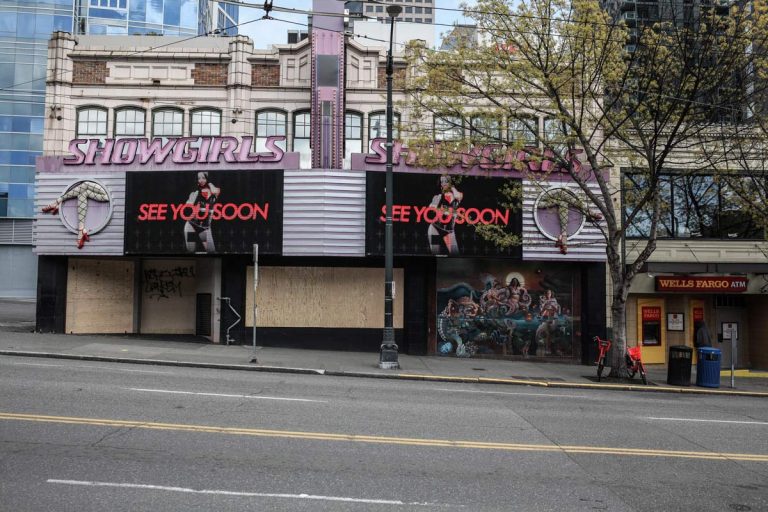Thinking of getting into sex work? Centro University might just be for you

Sex work is real work and it’s about time it gets recognised as such, there’s no question here. And like with any job, it is a demanding career in which you are constantly learning, growing, and upskilling.
But unlike many other industries, the sex work sector strongly lacks learning and educational opportunities—at least until now. The recently launched Centro University (CentroU) is aiming to bridge this education gap by first creating and then teaching the tools necessary to thrive in the adult sector.
Established only last month in September by FanCentro, a subscription-based platform that allows adult performers and creators to sell access to content, Centro University is a free online school created with the aim of teaching sex workers everything they need to know when it comes to the business side of their sector, such as financing and admin through live webinars, masterclasses, and video series.
As a society, our views and perceptions of work and professionalism can often be quite outdated. For so long, career and life journeys were expected to go as such—you go to university, get a good job, and work your way up. Millennials and gen Zers are starting to break these patterns. More and more of us work as freelancers (whether this is by choice or due to the lack of stable work opportunities is a whole other story), influencers are getting creative with the ways they monetise their platforms, and more young people are taking the plunge and chasing their entrepreneurial dreams.
With the rise of platforms such as FanCentro and OnlyFans, the adult industry is booming, and creators are joining on the daily. So a course preparing newcomers for their future careers, in the same way a more traditional academic course aims to prepare you for yours, should come as no surprise. But just what exactly can you expect from Centro University?
MelRose Michaels, an adult content creator and a teacher at Centro University tells Screen Shot that she hopes to bring her skills and expertise in order to help others starting out in the industry. After gaining success on the FanCentro platform herself, Michaels felt that it needed some kind of educational course, which FanCentro were already brainstorming on.
Michaels started out her career in the industry nine years ago, and explains that the lack of guidance and resources created difficulties for her, which then became a driving force behind her inspiration for teaching on the course. “You have to pay for taxes, you have to find a good accountant, you know, all of these things, and when I first started, no one told me that, so I wasn’t saving for taxes and at the end of the year, I was getting major debts.” The course will cover essential topics such as law and contracts, safety, health, privacy, censorship, marketing, promotion, and production (note how much of the traditional academia doesn’t teach you this).
The global COVID-19 pandemic was a driving factor behind the success of the new course, Michaels explains: “There are so many new people coming to the space—people are getting laid off, people during quarantine were stuck at home.” In addition to this, many sex workers who have previously worked with their clients in real life had to switch to online sex work, which created an even greater influx of people joining the platform.
FanCentro wanted to ensure that all these newcomers have a solid foundation to begin their careers on, and the course attracted over 700 students when it first launched, only skyrocketing from there, and according to Michaels, the feedback has been overwhelming. Similarly, the course is also popular among existing members. “For veteran models who have been on the platform for a few years now, they come into the course and they still find something to take away from it that they didn’t know and didn’t consider,” shares Michaels.
Michaels also describes an “influx” of influencers joining the platform as a result of the pandemic, which she believes to be a major factor to the destigmatisation of sex work. Interestingly enough, the discourse around influencers joining these spaces has mixed views: many have previously criticised influencers for creating more competition as well as often scamming their subscribers by overexaggerating the extent of the nudity in their content.
Just last month, actress Bella Thorne came under fire for creating an OnlyFans account and selling $200 dollar photos that did not come as described. This resulted in OnlyFans changing their rules and regulations by setting limits on how much creators can earn and how often they get paid, which understandably, has ruined a lot of the content creators’ stability and income flow.
...I am a mainstream face and when you have a voice, a platform, you try to use you in helping others and advocate for something bigger than yourself. Again in this process I hurt you and for that I’m truly sorry.
— BITCHIMBELLATHORNE (@bellathorne) August 29, 2020
Nevertheless, Michaels explains that “everytime a mainstream influencer crosses into our industry and into our space, it brings in new fans into the space, users, and more money,” which essentially helps defeat stigma. “The more people we have in the space who are educated and can navigate it better, it’s going to help us long term as a community,” adds Michaels. So the course is immensely beneficial for anyone deciding to enter.
Perhaps Centro University is only the start of the destigmatisation and empowerment of the sex work industry, but it is certainly a driving force in doing so. Forget about meme studies being the next big thing, sex work education might just be it.




